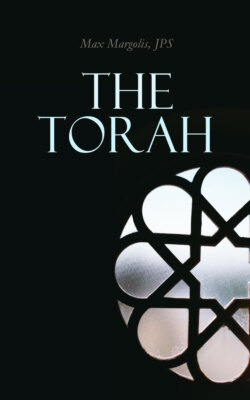Читать книгу The Torah - Max Margolis - Страница 15
На сайте Литреса книга снята с продажи.
Civil Law.
ОглавлениеOn the other hand, the civil law of the Torah, which is more developed and bears a practical character, probably accords more closely with ancient Jewish legal procedure. It reflects the conditions of an agricultural state, since most of the laws relate to farming and cognate matters. There was no Hebrew word for "store," although "just measure" was mentioned. It must be borne in mind, however, that to satisfy the more advanced conditions of later times, the Talmudists both supplemented the Mosaic law and by means of analogy and similar expedients interpolated into the Torah much which it did not contain originally.
From the earliest times the Synagogue has proclaimed the divine origin of the Pentateuch, and has held that Moses wrote it down from dictation, while the religions based on Judaism have until very recently held the same view. Biblical criticism, however, denies the Mosaic authorship and ascribes only a portion of varying extent to so ancient an origin. A history of criticism in regard to this point is given by Winer ("B. R." ii. 419 et seq.) and by Driver (in Hastings, "Dict. Bible," iii. 66), while Montefiore expresses himself as follows (l.c.):
"The Torah—or teaching—of the priests, half judicial, half pædagogic, was a deep moral influence; and there was no element in the religion which was at once more genuinely Hebrew and more closely identified with the national God. There is good reason to believe that this priestly Torah is the one religious institution which can be correctly attributed to Moses. . . . Though Moses was not the author of the written law, he was unquestionably the founder of that oral teaching, or Torah, which preceded and became the basis of the codes of the Pentateuch."
The legal parts of the Torah are found in Ex. xx.-xxiii., xxv.-xxxi., xxxiv.-xxxv.; Lev. i.-viii., xi.-xxv., xxvii.; Num. v.-x., xviii., xix., xxvii.-xxx., these laws being repeated in Deut. iv. et seq.
